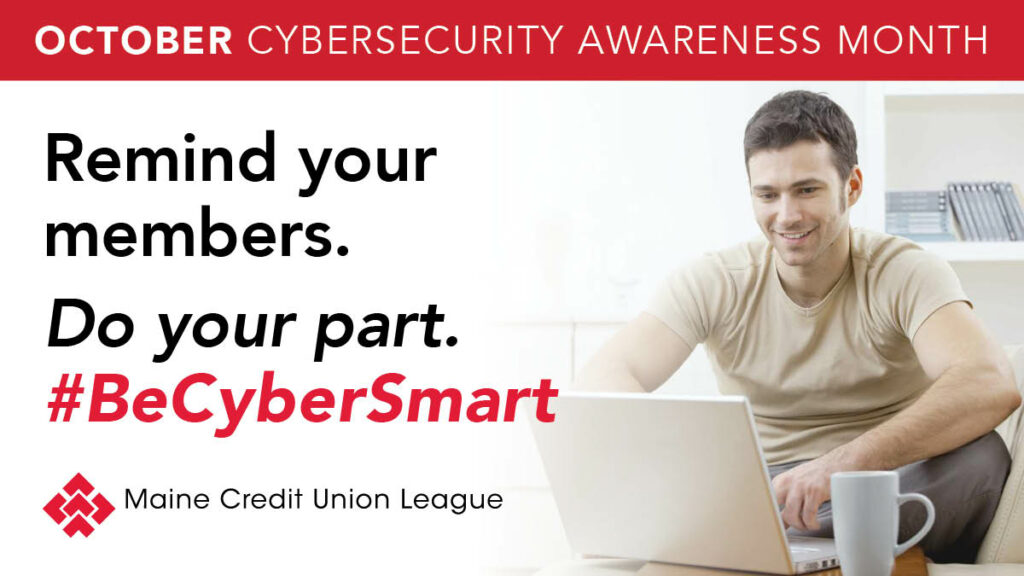
October is Cybersecurity Awareness Month, an excellent time to remind your members about the importance of practicing smart online habits. The theme for Cybersecurity Awareness Month is “Do your part. Be cyber smart.” To help your members do their part, the League has assembled a list of ten security tips you can share to help them make smarter decisions when it comes to their online activity.
While raising awareness about cybersecurity is a goal this month, everyone should work to minimize their risks for online threats all year long.
-
-
- Use unique passwords for all of your accounts and change those passwords frequently. Consider using a paraphrase or include special characters. A strong password is at least 12 characters long.
- Enable multi-factor authentication or utilize biometrics to double your login protection.
- Check your internet-enabled devices to ensure they have the most up-to-date security. Turn on automatic security updates where possible.
- Avoid transactions on websites that aren’t secure. For example, look for addresses containing “https://” or “shttp://”. These sites take extra measures to remain secure. A website utilizing “http://” is not considered secure.
- When traveling, avoid connecting to public Wi-Fi hotspots unless you can confirm the network is legitimate. Consider disabling location services that allow anyone to see where you are.
- Don’t give cybercriminals the opportunity to impersonate you by limiting what you share on social media (i.e. birthdays, where you were born, your mother’s maiden name).
- When it doubt, throw it out. Delete unsolicited emails and messages from individuals or companies you don’t know. Never click on links or open any attachments shared in these messages.
- Back up important files and do it often!
- Always be vigilant with requests to disclose information. Smishing uses messaging apps (like SMS) to fraudulently gain personal details. Vishing is voice phishing, where fraudsters try to obtain sensitive information (i.e. social security numbers or banking credentials) over the phone.
- Be a good online citizen. Share information about cybercrime with others and report fraudulent incidents to local law enforcement office or to the State Attorney General’s Office.
For more information about Cybersecurity Awareness month and to view additional resources, visit the Cybersecurity and Infrastructure Security Agency’s website.
-
